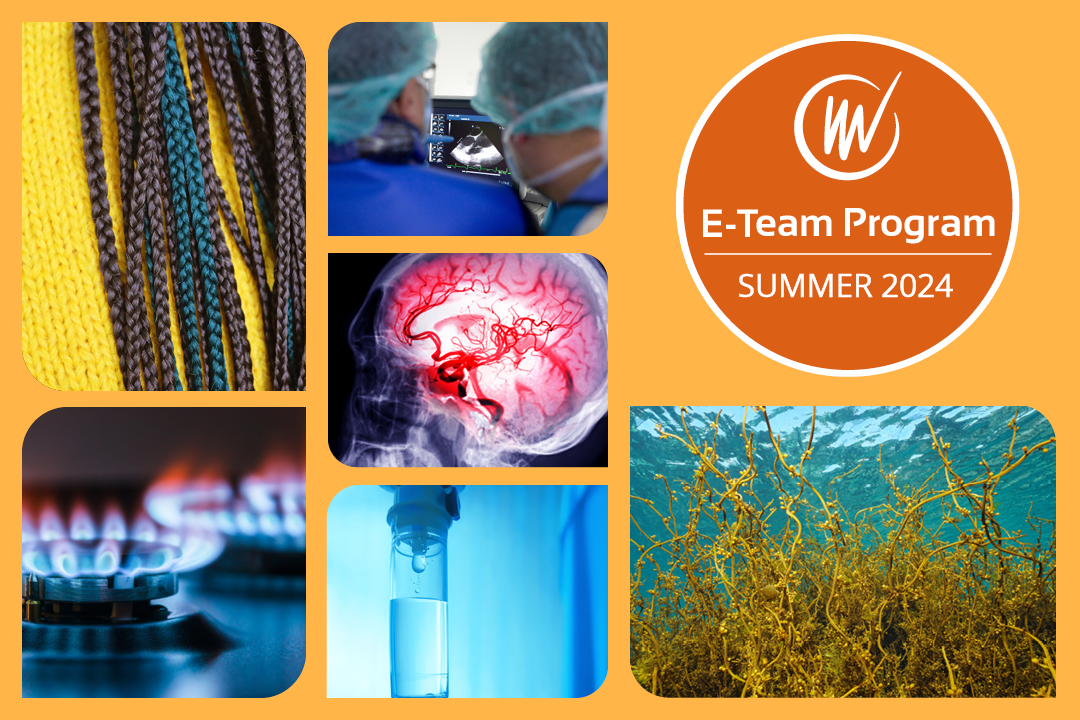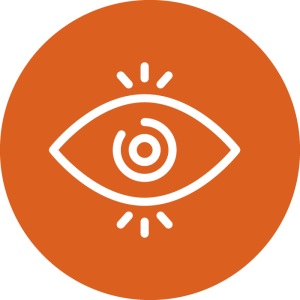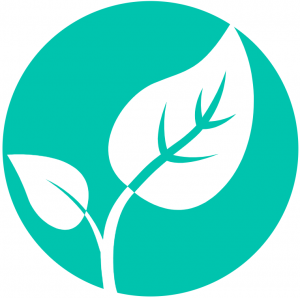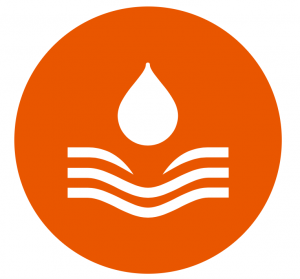
Twenty-three student ventures have been selected to participate in the Summer 2024 cohort of the E-Team Program after a competitive review process. These innovator teams are developing novel science- and technology-based solutions to critical challenges facing the environment, healthcare, and society. Fifteen teams will begin their entrepreneurship journey by participating in Pioneer, the first stage of the E-Team Program, which includes $5,000 in grant funding and dedicated training to help uncover the ideal market for their inventions. Eight teams will advance to Propel, the second stage of the program, where they will receive an additional $20,000 in funding and three months of training in building their business model canvas and testing their business hypotheses.
“By participating in the E-Team Program, these founders are taking a significant step forward for their businesses,” said VentureWell Program Officer Sarah Wharmby. “They are about to embark on a journey to test their product-market fit, scalability, and potential for impact. We are looking forward to supporting these ventures as they map out the path that will take their innovations from lab to market.”
This cohort showcases promising inventions from teams like Phoenix, which is developing a cost-effective prosthetic designed with interchangeable parts, allowing for easy and accessible repair; and returning teams like ReBlood Rx, which is refining a reliable oxygen delivery system to treat hemorrhagic shock in environments where blood availability is limited.
Learn more about our newest Pioneer and Propel teams, and the potential positive impact of their inventions:
 Agriculture
Agriculture
HydroPhos Solutions | University of New Hampshire
Principal Investigator: Belle Kenoyer
Team Members: Daisy Burns, Matthew Oriente, Katie Remeis
HydroPhos is developing filtration technology that extracts phosphorus from wastewater to be used as fertilizer, combating phosphorus depletion and extending the lifespan of global food supply.
NIRBY | University of Pennsylvania and Medical University of Silesia
Principal Investigator: Jeffrey Babin
Team Members: Olga Ciechalska, Piotr Lazarek
NIRBY is developing a software management platform that uses satellite data and drone-enabled soil measurements to deliver real-time analytics to farmers, identifying inefficiencies in fertilizer usage to mitigate waste and increase crop yields.
 Beauty & Cosmetics
Beauty & Cosmetics
HairRobotics | University of California, Berkeley
Principal Investigator: Rhonda Shrader
Team Members: Gamini Garg, Mah Kadidia Konate, Tomi Ojoyeyi
HairRobotics is developing robotic technology that braids hair at a lower cost, reducing the time necessary to braid and mitigating health challenges hair stylists face due to the labor-intensive nature of the work.
 Environment
Environment
BioFlare | University of Southern California
Principal Investigator: Ellis Meng
Team Members: Noy Chatoyan, Jacqueline Franco, Nam Nguyen, Anette Sandoval
BioFlare is developing a compact kitchen device that converts waste into cooking gas using a formula of additives that speeds up the process of gas conversion. This offers a sustainable, low-cost fuel alternative to consumers without access to gas line infrastructure.
Converteca | University of St. Thomas – Minnesota
Principal Investigator: Jessica Cooley
Team Members: Georges Macheta, Gabriel Riegert
Converteca is developing a sustainable recycling process for lithium ion batteries by extracting valuable raw materials and selling them to battery manufacturers, meeting the increasing demand for lithium, cobalt, and nickel while promoting a sustainable supply chain.
Ecoplasticity | California Polytechnic State University, San Luis Obispo
Principal Investigator: Thomas Katona
Team Members: Michelle Cullen, Stephanie Fabro, Mayela Fernandez Cantu
Ecoplasticity is developing a biofilm made out of sargassum, an invasive species of seaweed, to substitute in place of conventional plastic films for food packaging. It’s also engineered to biodegrade in natural environments and landfills.
 Healthcare/Medical
Healthcare/Medical
CerebroGate | Johns Hopkins University
Principal Investigator: Alan Cohen
Team Members: Kayoung Kwon, Jackson Morris, Ritvik Pulya
CerebroGate is developing a shunt for ventricular catheters to allow unobstructed cerebrospinal fluid flow in hydrocephalus patients, reducing shunt malfunction and mitigating the need for invasive replacement surgery.
CIPER | Columbia University
Principal Investigator: Megan Heenan
Team Members: Annabel Cho, Leo Heinri, Sean Kim
CIPER is developing a device that autonomously administers small infusion volumes of intravenous (IV) medication at a predetermined rate, reducing errors and supporting convenience and efficiency for nurses.
EndoGuard | Johns Hopkins University
Principal Investigator: Youseph Yazdi
Team Members: Noah Lu, Aryaman Shodhan, Gabriella Wong
EndoGuard is developing a non-invasive technique that uses high-intensity focused ultrasound and Doppler ultrasound imaging guidance to block collateral vessels and treat Type II endoleaks, offering a safer, single-procedure outpatient solution for abdominal aortic aneurysms.
ERBD | Xavier University of Louisiana
Principal Investigator: Shearon Roberts
Team Members: Ebenezer Nyenwe, Sophie Williams
ERBD is developing software that provides real-time analysis for hospital systems that highlight areas of bias involving patients from underserved communities, improving healthcare experiences for both the patient and provider.
InFluo | Johns Hopkins University
Principal Investigator: Elizabeth Logsdon
Team Members: Rebecca Baxter, Benjamin Jackson, Nhan Le, Alana Yee
InFluo is developing an affordable assistive device that flushes drainage catheters, allowing for improved fluid flow, targeted flushing of specific clogs, and reducing the need for repeat drain placement procedures.
MediMint | University of Pennsylvania
Principal Investigator: Tyler Wry
Team Members: Abhisri Ramesh, Avanthika Ramesh
MediMint is developing a blockchain-powered platform that streamlines the medical image-sharing process, making it easier for providers to securely share medical images between patients and other institutions.
Phoenix | Washington University in St. Louis
Principal Investigator: Cyril Loum
Team Members: Lili Hostetler, Logan Rogge
Phoenix is developing a cost-effective prosthetic designed with interchangeable parts, allowing the user to easily exchange, replace, or alter a part using a toolkit that doesn’t require specialized skills.
Vault Kinetics | Yale University
Principal Investigator: Clare Leinweber
Team Members: Joshua Gao, Eunice Han, Matthew Riley, Eric Wang
Vault Kinetics is developing force-sensitive technology embedded into flooring surfaces that collects and analyzes data, rendering a 3D visualization of movement to be used by athletes, businesses, healthcare professionals, and gaming industries.
YieldEASE | Johns Hopkins University
Principal Investigator: Youseph Yazdi
Team Members: Rida Amjed, Sainkhuu Enkh-Otgon, Fujia Zheng
YieldEASE is developing a needle accessory that can perform rapid and automated micro-excursions for diagnostic breast cancer testing, delivering more accurate results without repeat biopsy procedures.

 Agriculture
Agriculture
Prospect Growth | Yale University
Principal Investigator: Clare Leinweber
Team Members: Wyatt Arnold, Andreas Backhaus
Research has shown that traditional fertilizers are responsible for five percent of global greenhouse gases. Prospect Growth developed a nanoparticle-based fertilizer that acts as a sustainable and cost-effective alternative to chemical fertilizers, increasing crop yields and reducing nutrient waste.
 Environment
Environment
ThreadMap | Yale University
Principal Investigator: Clare Leinweber
Team Members: Margaret Boreham, Eunjee Koh
Ten percent of total global carbon emissions come from fashion production. ThreadMap developed a one-stop SaaS platform that tracks a garment from production to end-of-life, enabling a transparent and circular future for fashion and apparel.
 Healthcare/Medical
Healthcare/Medical
inSTENT Connection | University of Washington
Principal Investigator: Eric Seibel
Team Members: Brandon Lou, Gillian Pereira, Ziming Ye
Gastrointestinal surgery remains one of the most complex procedures in medicine, resulting in complication rates of up to 44 percent. inSTENT Connection has developed 3D-printable stents and sutures with an expandable design that can be implanted and absorbed into the body, eliminating the need for staples and sutures typically used in gastrointestinal surgery and reducing anastomotic leaks.
QuikReversal | Johns Hopkins University
Principal Investigator: Josh Ambrose
Team Members: Yitzhak Goldstein, Asher Varon
In 2022, over 110,000 people in the U.S. died from drug overdose, with almost 70 percent of cases due to fentanyl and other synthetic opioids. QuikReversal developed Vive, a disposable, non-electronic, wearable device that automatically detects a lethal opioid overdose, delivering an immediate antidote of naloxone without the need for bystander intervention.
ReBlood Rx | University of California San Diego
Principal Investigator: Pedro Cabrales
Team Members: Daniela Lucas, Carlos Munoz
Hemorrhage is the leading cause of preventable military and civilian trauma death. However, preferred treatment of resuscitation can be challenging in settings with resource limitations. ReBlood Rx developed a reliable oxygen delivery system to treat hemorrhagic shock in environments where blood availability and robust resuscitation capabilities are limited.
Trinity Tube | The University of Texas at Austin
Principal Investigator: Chris Rylander
Team Members: Blanca Cuesta, Thomas Hristov, Iman Salafian
Every year, about 15 million infants worldwide are born prematurely. They require specialized monitoring for vital signs, which can be challenging due to their fragile skin. Trinity Tube developed a comfortable, multifunctional neonatal feeding tube capable of continuous vital sign monitoring, reducing the need for skin-mounted sensors that can irritate the skin of infants who are born premature.
Zemi | University of Connecticut
Principal Investigator: Gregory Sotzing
Team Members: Kyle Mahoney, Josué Martínez-Martínez, John Toribio
Fitness trackers can offer limited and sometimes inaccurate data, particularly when the device is moved out of alignment during use. Toribio Labs developed wearable smart clothing enabled by conductive polymer printed onto fabric that continuously monitors and records heart, muscle, and skin health.
 Sanitation/Water
Sanitation/Water
AquaMesh | University of California San Diego
Principal Investigator: Jacques Chirazi
Team Members: Arya Massarat, Alex Towfig, David Truong
Water quality monitoring is necessary for supporting local ecosystems, locating sources of pollution, and improving waterways. AquaMesh developed a comprehensive water monitoring system using machine learning software and modular sensor technology, delivering precise real-time analysis to efficiently streamline water quality monitoring and replace the need for lab testing.
Meet the Summer 2024 E-Team Partners and Sponsors
We are thankful for our partners that work with us to support these startups, including the Small Business Innovation Research (SBIR) and Small Business Technology Transfer (STTR) program America’s Seed Fund, which awards non-dilutive funding to startups and small businesses; Qualcomm, a leading wireless tech innovator; the Washington Clean Energy Testbeds, our host for the in-person Pioneer and Propel workshops; and The Lemelson Foundation, a nonprofit dedicated to supporting the power of invention to improve lives.
The E-Team Entrepreneurial Journey
Our Summer 2024 cohort teams will begin rigorous entrepreneurship training to advance their innovations. During Pioneer, teams will identify the ideal market for their invention, understand potential venture pathways, and define their unique value in the context of the industry landscape. Teams that move on to Propel will form and test their business model hypotheses. They’ll flesh out their business model canvas, verify it through customer interviews, and work on building their intellectual property portfolio. Participants in our summer workshops will convene at the Washington Clean Energy Testbeds in Seattle, Washington, July 25-26 (Pioneer) and August 8-9 (Propel).
About the E-Team Program
Through the E-Team Program, we have trained 570+ student teams and 1,400+ student innovators. The teams have raised more than $490 million in follow-on funding and have launched nearly 250 ventures since taking part in our program.
Learn more about VentureWell’s E-Team Program, which supports student-led science- and engineering-based teams from across the nation in bringing their high-impact innovations out of the lab and into the market.
